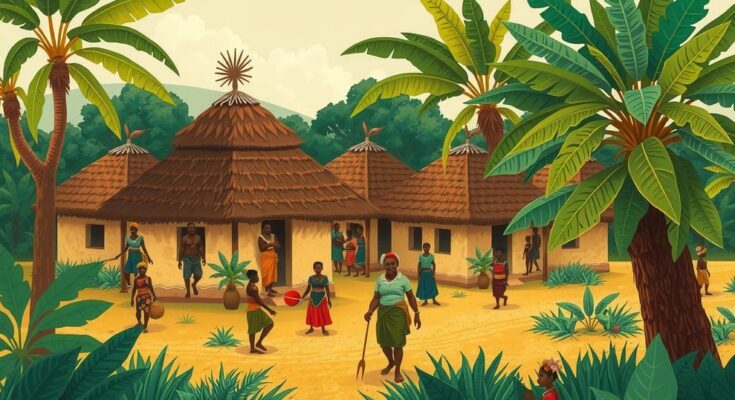Ewaffe Cultural Village, nestled in Naggalama, Mukono district, has blossomed into a haven for those seeking to explore the rich Kiganda traditions. Just 38 km from Kampala, it has swiftly become a beloved spot for international and local visitors alike, eager to delve into the true essence of Ugandan lifestyle. Our recent journey there unveiled a treasure trove of culinary delights, vibrant dances, and the warmth of community spirit.
Upon our arrival, the enchanting sight of a large, inviting hut instantly transported us into the village atmosphere. Local girls performed the lively Bakisimba dance as guests enjoyed fresh banana juice (omubisi), sipped from traditional gourds with bamboo straws. Among fellow tourists from the Netherlands and Malaysia, we embarked on our adventure, beginning with a fascinating tour of herbal medicine led by our knowledgeable guide, Jackie Nanyonga.
Nanyonga introduced us to a variety of medicinal herbs, such as aloe vera (kigagi) and turmeric, explaining their benefits and the minimal side effects compared to Western medicine. She then shared a fascinating local tradition while teaching us how to craft a head cushion (enkata) from banana leaves, essential for transporting water from the famed Nalongo well. This ancient well, 200 years old, is revered for never drying up and is linked to many local legends.
As we fetched water, the stories of young courtship at the well captivated the group, illuminating the cultural significance of these rituals. Our excursion continued with a delightful exploration of local delicacies. We enjoyed sugarcane and fresh fruits while learning to create banana juice—a unique brew fermented for traditional marriages—under the guidance of Yudaya Nakagiri.
The process of making banana juice involved using specific bananas and spear grass, with a focus on combining flavours and ensuring nothing went to waste. Following this, we dove into the preparation of traditional dishes like matooke and luwombo, guided by the skilled Ssenga Caroline, whose methods enchanted us and connected us with the culinary heritage of the Baganda people.
The tour also included insightful discussions about the ancient art of making bark cloth from fig trees, ending our day with fishing attempts that, despite our dedication, yielded no catch. Aisha Nabawanika, the visionary behind Ewaffe Cultural Village, founded this cultural sanctuary in 2023, recognising the need for cultural tourism in Uganda, which had largely overlooked the rich traditions in favour of wildlife and nature.
The experience captivated tourists from various backgrounds, including Dutch students and a Jamaican-Malaysian artist, each expressing how the warm welcome and cultural immersion transformed their understanding of Ugandan heritage. Many highlighted the garden’s serenity and the genuine hospitality enjoyed during their visit, leaving them yearning for more such experiences.
Ewaffe stands not just as a cultural attraction but also as a beacon of community entrepreneurship, fostering economic growth and cultural appreciation, making it an encouraging venue for families seeking deeper connections to the Baganda heritage. With plans to expand into accommodation offerings, Ewaffe aims to provide even richer experiences for future visitors to soak in the essence of Ugandan culture.
Ewaffe Cultural Village, located in Mukono district, offers immersive experiences into Kiganda traditions. Highlights include herbal medicine tours, food preparation workshops, and dancing, creating a rich cultural exploration for both local and international tourists. Founded by Aisha Nabawanika in 2023, Ewaffe aims to promote cultural tourism and create job opportunities within the community while planning to expand its services.
The emergence of Ewaffe Cultural Village as a pivotal cultural tourism hub highlights the growing interest in Uganda’s rich traditions. Visitors are enthralled by the immersive experiences, from culinary delights to traditional dances, all underscored by the community’s commitment to preserving its heritage. Aisha Nabawanika’s vision not only showcases the cultural wealth of Uganda but also empowers local people through employment, marking a proud step towards sustainable tourism that elevates and celebrates local culture.
Original Source: observer.ug



